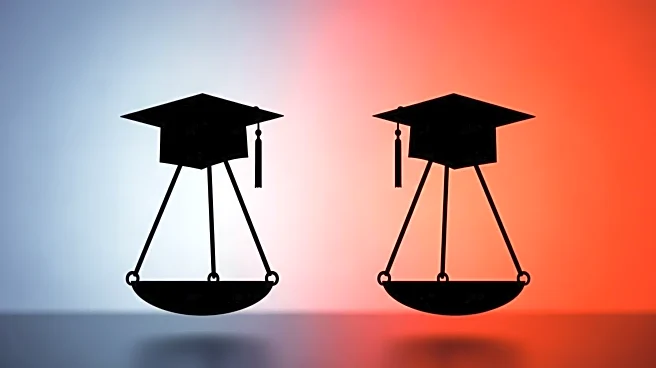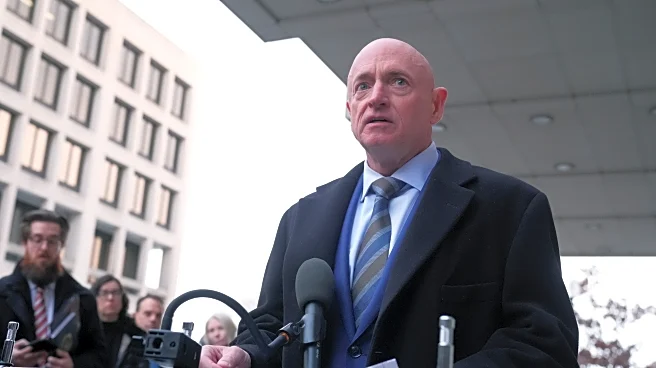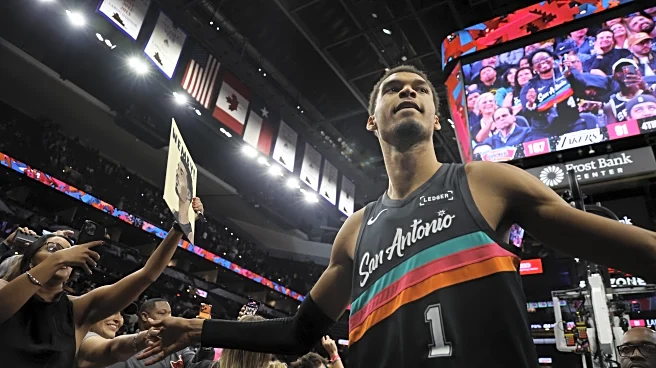What's Happening?
A recent study highlights a growing educational divide among members of Congress, with Republicans increasingly attending nonelite universities, while Democrats are more likely to have degrees from Ivy League or other elite institutions. This shift marks a departure from 50 years ago when both parties had similar educational backgrounds. The study, conducted by researchers from the University of Arkansas, Vanderbilt University, and the University of Virginia, suggests that this divide contributes to the current polarization in Congress, as shared educational experiences once helped bridge partisan gaps.
Why It's Important?
The educational divide in Congress mirrors broader societal trends, where educational attainment is increasingly linked to political affiliation. This divide may exacerbate existing partisan tensions, as lawmakers with different educational backgrounds may have divergent worldviews and policy priorities. The study raises concerns about the implications for governance and policymaking, as a lack of common educational experiences could hinder bipartisan cooperation and compromise.
Beyond the Headlines
The shift in educational backgrounds among lawmakers also reflects changes in party demographics and voter bases. Republicans have positioned themselves as a party of the working class, while Democrats are seen as representing more affluent, educated constituencies. This realignment could influence future electoral strategies and policy agendas, as parties seek to appeal to their respective bases.











